This article was co-authored by Marsha Durkin, RN and by wikiHow staff writer, Megaera Lorenz, PhD. Marsha Durkin is a Registered Nurse and Laboratory Information Specialist for Mercy Hospital and Medical Center in Illinois. She received her Associates Degree in Nursing from Olney Central College in 1987.
There are 9 references cited in this article, which can be found at the bottom of the page.
wikiHow marks an article as reader-approved once it receives enough positive feedback. In this case, 100% of readers who voted found the article helpful, earning it our reader-approved status.
This article has been viewed 50,299 times.
Ectopic pregnancies are potentially life-threatening emergencies that require immediate medical care. Unfortunately, these pregnancies are also non-viable. In a normal pregnancy, the fertilized egg travels to the uterus through the fallopian tube and then implants in the lining of the uterus. An ectopic pregnancy happens when the fertilized egg does not travel to the uterus, but instead stays in the fallopian tube. In some cases, the egg may implant in your ovary, cervix, or abdomen. If you have the symptoms of an ectopic pregnancy, the best thing you can do is stay calm and seek medical attention immediately. After your ectopic pregnancy, take time to care for yourself and seek support from friends, family, or a professional counselor.
Steps
Recognizing the Symptoms of an Ectopic Pregnancy
-
1Note vaginal bleeding. Abnormal vaginal bleeding is often one of the first symptoms of an ectopic pregnancy.[1] This bleeding may be either heavier or lighter than what you normally experience during your menstrual period. It may also be accompanied by severe pelvic or abdominal pain.
- If you experience vaginal bleeding when you know you are pregnant, or if the vaginal bleeding is accompanied by severe pain or lightheadedness, seek medical attention right away.
-
2Take abdominal or pelvic pain seriously. If you have pain in your lower abdomen or pelvic area, or cramping on one side of your pelvis, you may have an ectopic pregnancy. If this pain persists, worsens, or occurs with any other symptoms (such as vaginal bleeding), call your doctor or go to the emergency room right away.[2]
- This pain may feel sharp or stabbing, and its intensity may vary from one moment to another.
Advertisement -
3Check for shoulder pain. Ectopic pregnancy is sometimes accompanied by a sharp pain that radiates into the shoulder and neck. If you experience this symptom, especially if you know you are pregnant and/or the pain is accompanied by other symptoms (such as pelvic pain and vaginal bleeding), seek emergency medical care immediately.
-
4Go to the emergency room for severe symptoms. An ectopic pregnancy may rupture if left untreated, causing severe internal bleeding. Seek emergency medical care immediately if you experience the following symptoms of a ruptured ectopic pregnancy.[3]
- Sudden, severe abdominal or pelvic pain that lasts for more than a few minutes.
- Light-headedness or dizziness.
- Stabbing pain in the shoulder or neck. This may be caused by blood in the abdomen or under the diaphragm putting pressure on nerves that run to your shoulder.
- A sensation of pain or pressure in your rectum (this may feel like an urgent need to have a bowel movement). This may be a sign of internal bleeding, which needs immediate medical treatment.
- Low blood pressure.
- Nausea and vomiting.
- Pain on 1 side of your body.
- Sharp abdominal cramps.
- Weakness.
- Fainting.
Getting a Medical Diagnosis
-
1Try to stay calm. The symptoms of an ectopic pregnancy can be very frightening. If you are experiencing these symptoms and are feeling really overwhelmed or panicked, take a few moments to breathe deeply. Remind yourself that it's okay to feel scared or upset, and that what you are experiencing now will pass. The best thing you can do is get to the doctor as soon as possible so that they can figure out what is going on and give you appropriate treatment.
-
2Seek medical attention immediately. If you suspect an ectopic pregnancy, whether or not you've already had a positive pregnancy test, get to a doctor or emergency room as soon as possible. An ectopic pregnancy can become life-threatening quickly if left untreated.[4]
-
3Describe your symptoms. Your doctor will have a better chance of diagnosing you correctly if you can give them a clear description of your symptoms. Let them know how long you have had the symptoms and whether they appeared gradually or suddenly.[5]
- Provide as many details as possible. For example, if you are experiencing pain, describe the location, type, and intensity of the pain. You might say, “I got a sudden, sharp pain in my pelvis about an hour ago, and it hasn't gone away.”
-
4Tell your doctor about your health history. In addition to asking about your current symptoms, the doctor may want to know details about your overall health and any recent history that might be related to your symptoms. They may ask about:[6]
- The date of your last period.
- Whether your last period was unusual in any way.
- Any previous pregnancies.
- Whether you are sexually active or trying to conceive.
- What type(s) of birth control you are using, if any.
- Whether you have had in vitro fertilization.
- Your previous history of serious health conditions, if any.
- Any medications you are currently taking.
-
5Let your doctor do a pelvic exam. A pelvic exam is usually the first step in diagnosing an ectopic pregnancy. Your doctor will check for any particular areas of pain or tenderness and feel for obvious masses. At the same time, they will check to see if there are any other visible causes of your symptoms.[7]
- While your doctor will not be able to definitively diagnose an ectopic pregnancy based on a pelvic exam alone, this exam can help narrow down the most likely causes of your symptoms.
-
6Give blood or urine samples, if needed. If your doctor suspects an ectopic pregnancy based on the pelvic exam, they may wish to run lab tests to check your hCG and progesterone (pregnancy hormone) levels. Unusual pregnancy hormone levels can be a good indicator of ectopic pregnancy. Your doctor may draw some blood or ask you to provide a urine sample for testing.[8]
-
7Get an ultrasound. If your doctor suspects an ectopic pregnancy, they will probably recommend an immediate vaginal ultrasound. Your doctor or an ultrasound technician will insert a small device into your vagina to perform the ultrasound and look for evidence of an ectopic pregnancy.[9]
- Occasionally, it may be too early for an ectopic pregnancy to show on an ultrasound. If this is the case, your doctor may monitor your condition and repeat the ultrasound at a later date.
- An ectopic pregnancy is usually clearly visible on an ultrasound by 4-5 weeks after the date of conception.
-
8Have a culdocentesis done, if necessary. In some cases, your doctor may wish to perform a culdocentesis. This test can help determine whether you have a ruptured fallopian tube. In culdocentesis, a needle is inserted into the top of the vagina to check for the presence of blood behind the uterus and above the rectum.
-
9Consent to exploratory surgery if your condition is life-threatening. If your symptoms are severe enough (e.g., if you are bleeding heavily), your emergency medical team may decide there is no time for diagnostic testing. In these situations, the best option may be emergency surgery to locate and treat the source of the problem as quickly as possible.[10]
Receiving Medical Treatment
-
1Acknowledge that the pregnancy is not viable. Unfortunately, the only treatment option for an ectopic pregnancy is to remove the ectopic embryo. This is because the condition is life-threatening to the mother and fatal to the embryo.[11]
- The earlier you treat an ectopic pregnancy, the better your chances are of having a healthy pregnancy in the future. Remember that you are doing the best possible thing by getting the treatment you need.
-
2Ask your doctor any questions you might have. As you discuss your diagnosis and treatment options, you will probably have a lot of questions. Don't hesitate to ask your doctor or any other healthcare specialists you may interact with during the treatment process. They can help you understand your condition and what is involved in any recommended treatment procedures.
- You might ask questions like, “What are the risks of this procedure?” or “What are my chances of having another healthy pregnancy after this treatment?”
-
3Have a friend or loved one with you for support, if possible. Getting medical treatment for an ectopic pregnancy can be stressful or frightening. Reach out to a significant other, relative, or friend who can be with you at the doctor's office or hospital to offer comfort and be an advocate for you.
- If there's no one available to be there with you, some hospitals and medical centers employ chaplains or volunteers who can offer emotional support to patients who need it.
-
4Get an injection of methotrexate to dissolve the ectopic pregnancy. This treatment is best when the ectopic pregnancy is caught early, before it becomes life-threatening. Methotrexate works by stopping the growth of embryonic cells and allowing your body to absorb any cells that are already established.[12]
- Your doctor may give you the methotrexate as a single injection or as multiple injections over the course of a week.
- A timely dosage of methotrexate may save your fallopian tubes from serious damage caused by surgery. This can increase your chances of having a healthy and successful pregnancy in the future.
- Your doctor will need to test your hCG levels over the next few weeks to confirm that the ectopic pregnancy has ended. If your hCG levels do not drop quickly enough, you may need surgery to remove the ectopic embryo.
-
5Consent to surgical treatment, if necessary. If your ectopic pregnancy does not respond well to methotrexate treatments, or if the ectopic pregnancy is too advanced, you may need to have the embryo removed surgically. The most common surgical treatment for an ectopic pregnancy is laparoscopy, in which the surgery is performed through a tube inserted into a tiny incision near your navel.[13]
- Laparoscopic surgery is typically performed under general anesthesia, meaning you will not be awake for the surgery.
- If your fallopian tube is ruptured or seriously damaged, it may have to be removed along with the ectopic embryo.
- In serious emergencies (e.g., if you are experiencing severe bleeding due to a rupture), a more invasive form of surgery, such as laparotomy, may be necessary.
- Follow all of your doctor's pre- and post-surgery self-care instructions carefully.
Seeking Emotional Support
-
1Reach out to family and friends for support. Losing a pregnancy is a physically and emotionally difficult experience, and an ectopic pregnancy can be especially distressing. Reach out to loved ones to vent your feelings and ask for both practical and emotional support as you recover from your ectopic pregnancy. If you have a significant other, their support can be especially helpful at this time.[14]
- Let your loved ones know exactly how they can help you. You may just want someone to talk to, or you may want someone to help you out around the house while you're recovering from surgery. Don't be afraid to tell people what you need.
-
2Allow yourself to grieve. You've suffered a loss, and it's natural to feel some grief. Give yourself however much time you need to process your feelings. You might feel sad, scared, angry, hopeless, or guilty. You might even have a hard time believing what has happened. All of those feelings are natural. Do your best to acknowledge them without judgment.[15]
- Although it is natural to experience feelings of guilt after an ectopic pregnancy, remember that what happened is not your fault. There is nothing you could have done to prevent the ectopic pregnancy, and you did the right thing by seeking treatment.
-
3Get professional counseling, if you feel you need it. If you're really struggling to recover emotionally, a counselor may be able to help. Ask your doctor to refer you to someone who has experience helping people who have lost pregnancies or survived ectopic pregnancies.[16]
-
4Join an ectopic pregnancy support group. When you're recovering from an ectopic pregnancy, it can be helpful to talk to other people who share your experience. Ask your doctor or counselor to recommend a support group, or do a search online for “ectopic pregnancy support group” or “pregnancy loss support group.”
Warnings
- Ectopic pregnancies are potentially fatal. If you think you may have one, do not wait. Seek medical treatment immediately.⧼thumbs_response⧽
References
- ↑ https://www.nhs.uk/conditions/ectopic-pregnancy/symptoms/
- ↑ https://www.nhs.uk/conditions/ectopic-pregnancy/symptoms/
- ↑ https://my.clevelandclinic.org/health/diseases/9687-ectopic-pregnancy
- ↑ https://my.clevelandclinic.org/health/diseases/9687-ectopic-pregnancy
- ↑ https://www.mayoclinic.org/diseases-conditions/ectopic-pregnancy/diagnosis-treatment/drc-20372093
- ↑ https://www.mayoclinic.org/diseases-conditions/ectopic-pregnancy/diagnosis-treatment/drc-20372093
- ↑ https://medlineplus.gov/ency/article/000895.htm
- ↑ https://medlineplus.gov/ency/article/000895.htm
- ↑ https://www.acog.org/womens-health/faqs/ectopic-pregnancy
- ↑ https://my.clevelandclinic.org/health/diseases/9687-ectopic-pregnancy
- ↑ https://www.plannedparenthood.org/learn/pregnancy/ectopic-pregnancy/how-do-i-know-if-i-have-ectopic-pregnancy
- ↑ https://www.uofmhealth.org/health-library/hw144921#hw144923
- ↑ https://www.aafp.org/pubs/afp/issues/2000/0215/p1080.html
- ↑ https://www.acog.org/womens-health/faqs/ectopic-pregnancy
- ↑ https://www.ectopic.org.uk/patients/emotional-impact/
- ↑ https://www.ectopic.org.uk/patients/emotional-impact/
- ↑ https://my.clevelandclinic.org/health/diseases/9687-ectopic-pregnancy
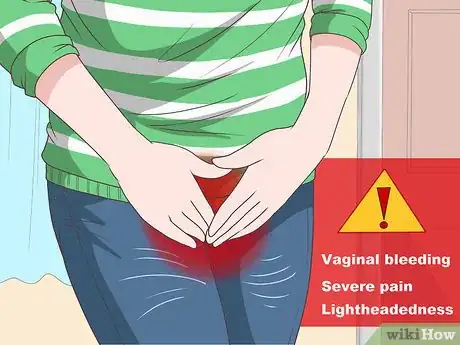







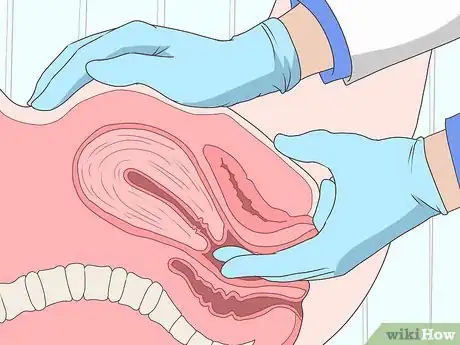
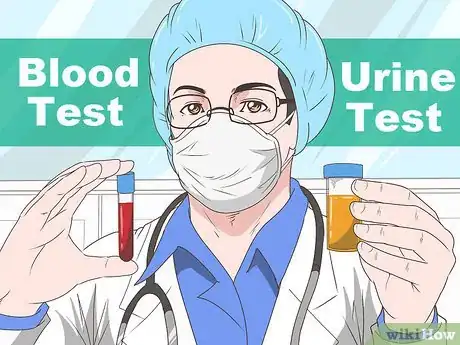
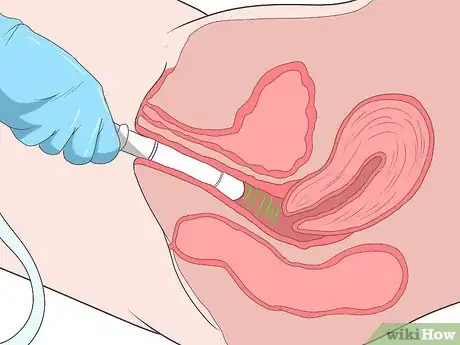
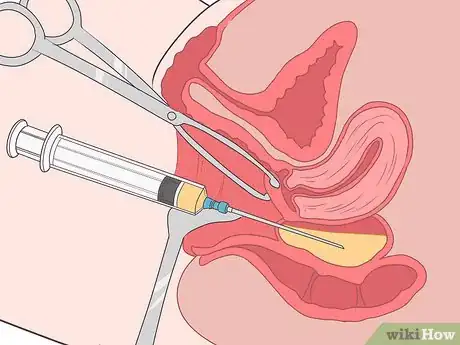

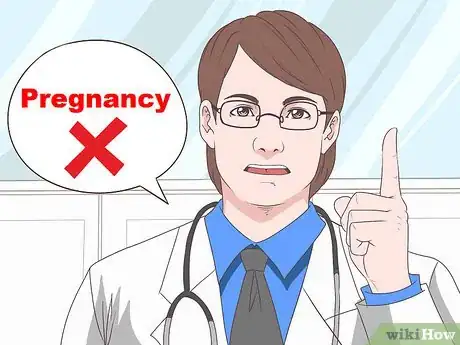









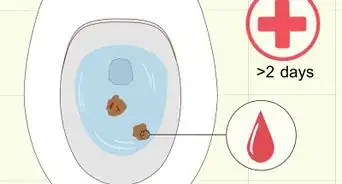






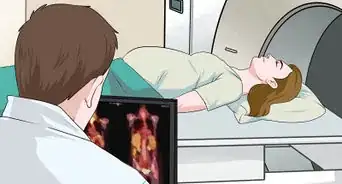



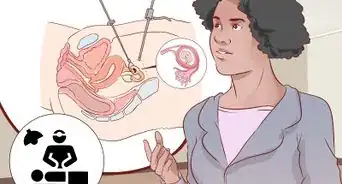










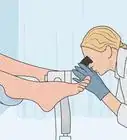
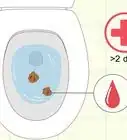





































Medical Disclaimer
The content of this article is not intended to be a substitute for professional medical advice, examination, diagnosis, or treatment. You should always contact your doctor or other qualified healthcare professional before starting, changing, or stopping any kind of health treatment.
Read More...